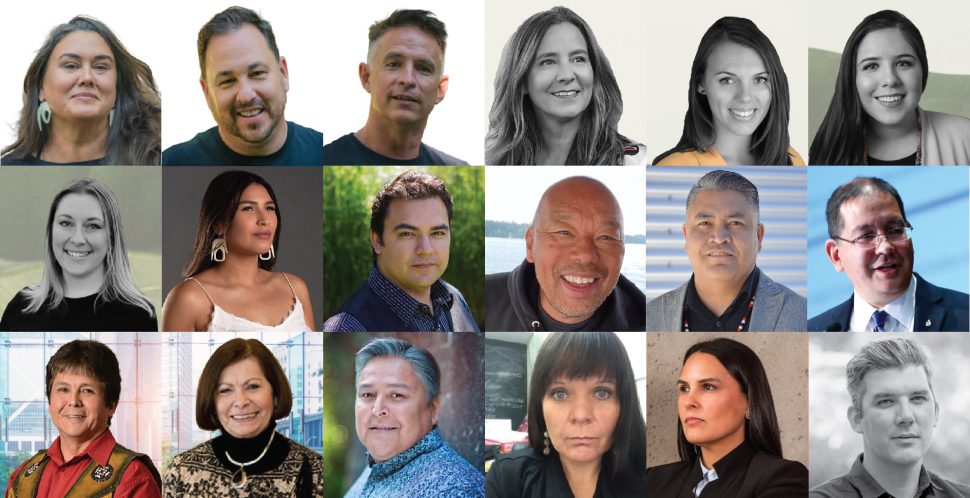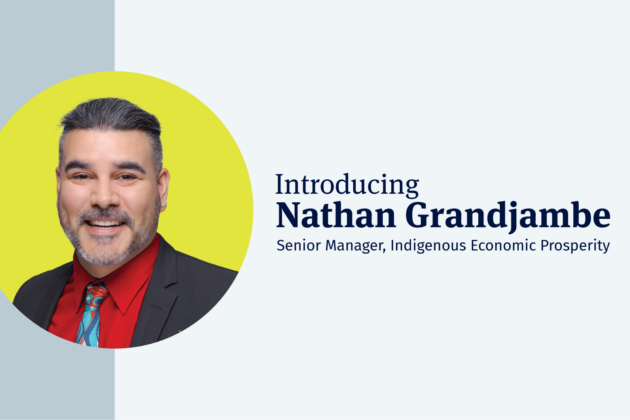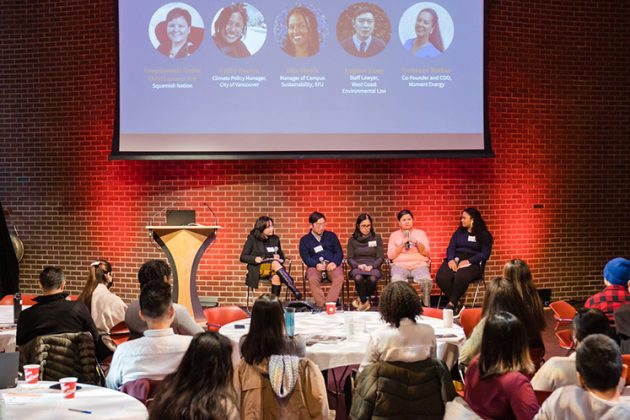The Vancouver Economic Commission respectfully acknowledges that we are based out of the unceded territories of the Musqueam, Squamish and Tsleil-Waututh First Nations, who have lived on and stewarded them since time immemorial.
However heartfelt and sincere, this land acknowledgement and similar variations become rote – even lip service – unless backed by meaningful and effective action to redress past and ongoing harms perpetuated against Indigenous peoples both locally and across the country.
These harms are systemic – abuses impacting First Nations and other Indigenous communities in ways that are financial, social, cultural, physical and educational, and that amount to genocide. What is inspiring, however, are the Indigenous leaders and groups working on behalf of their respective communities to restore prosperity – work that non-Indigenous groups can align with as we collectively pursue economic reconciliation.
Here are 10 organizations committed to regenerating Indigenous prosperity through investment, education, and relationship-building
Many Indigenous leaders today are the first generation in their family to grow up without being forced through the residential school system themselves. They are behind some of the initiatives committed to helping heal generations of trauma, exclusion and exploitation, and reclaiming economic traditions – trade, land stewardship, values shaping prosperity and balance with the natural world – that were once foundational to Indigenous communities prior to European contact.
For our part, VEC has committed to economic reconciliation as one of our core corporate pillars. Although we are still in the starting stages and have much work to do, we nonetheless invite you to join us in celebrating these visionary leaders, and in investing, engaging and supporting First Nations’ work to reclaim and build economic prosperity.
If you’re a non-Indigenous business leader, investor or organizer aiming to learn more, we’ve also listed some additional resources and further reading that we found helpful in our own journey. This article was originally published in 2022 to spotlight Indigenous People’s Day.
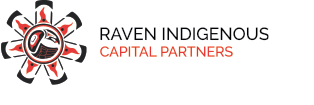
Raven Indigenous Capital Partners
Striving to empower Indigenous entrepreneurs with the capital and expertise required to launch successful businesses, Raven Indigenous Capital Partners is committed to supporting the ongoing revitalization of the Indigenous economy in Canada. With Indigenous people facing multiple impediments blocking economic inclusion and wealth, the company uses impact investing to provide these individuals and businesses with much-needed resources while encouraging investors to reap the benefits of competitive returns and long-term social and environmental impact.
Website | @Raven_Capital | LinkedIn
Headshots: Jacqueline Jennings (Director Fireweed Scholarship) (1); Jeffrey Cyr (Managing Partner) (2); Paul Lacerte (Managing Partner) (3)
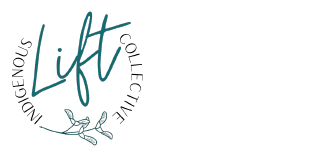
Indigenous LIFT Collective
A registered non-profit, Indigenous LIFT Collective amplifies, celebrates and connects Indigenous people across Vancouver and Canada, sharing their voices, stories, businesses and nations with the wider community. A recent initiative is The Lift Circle, a virtual gathering for Indigenous women entrepreneurs that offers encouragement, resources and a strong network of supporters. One of the collective’s directors is Teara Fraser, founder and pilot at Iskwew Air – the first Indigenous woman-owned airline – and one of 18 women featured in DC Comics’ graphic novel Wonderful Women of History.
Website | @Indigenous_LIFT | Facebook
Headshots: Teara Fraser (Founder) (4); Nicole Taylor-Sterritt (5); Kiara Alexander (6); Vanessa Lesperance (7)
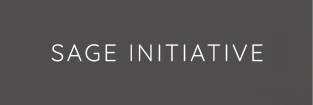
Sage Initiative
Sage Initiative was designed to cultivate wealth and prosperity among Indigenous women while honouring traditional, time-honoured values. Focusing exclusively on social purpose businesses and trusts, Sage advocates for Indigenous wealth staying in Indigenous communities, and aims to disrupt the capitalist value system that places profit above people and the planet. The company raises investment capital while offering education opportunities rooted in Indigenous epistemology, including traditional systems of commerce and reciprocity, trauma-informed impact investment and technical skills.
Website
Headshot: Sage Lacerte (Founder) (8)
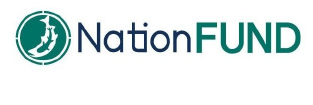
NationFUND
NationFUND Access Capital Corporation arranges equity and debt finance for First Nations ownership in major projects, and negotiates placement of capital assets on Indigenous controlled lands. It aims to do so by “protecting existing wealth, providing funding options and partnering with qualified projects and proponents.” The company’s goal is to end poverty and financial dependence in Indigenous communities, while encouraging Indigenous communities to achieve financial empowerment and invest in ventures that set up future generations for success.
Website
Headshots: Frank Busch (Founder & CEO) (9); Dale Tsuruda (Founder & Managing Partner) (10)

BC Assembly of First Nations
The British Columbia Assembly of First Nations (BCAFN) represents and advocates for 203 First Nations across the province, envisioning a future where Indigenous laws, lands and traditions are recognized and respected by governments, industry and the general public. The BCAFN have been staunch advocates calling on all orders of government to implement the 94 calls to action outlined in the Truth and Reconciliation Commission’s final report. In March, BCAFN Regional Chief Terry Teegee and advisor Mark Podlasly participated in Vancouver Economic Commission’s virtual panel “Future-proofing Vancouver,” which discussed social inequalities exacerbated by the pandemic and reimagining GDP to integrate Indigenous values.
Website | @BCAFN | LinkedIn
Headshots: Regional Chief Terry Teegee (11); Mark Podlasly (Advisor) (12)

National Indigenous Economic Development Board
The National Indigenous Economic Development Board (NIEDB) provides advice and guidance to the federal government about issues concerning Indigenous economic opportunities, with the goal of amplifying Indigenous voices in government policy. The organization’s 2020-23 Strategic Plan outlines four priority areas designed to close the gap between the country’s Indigenous and non-Indigenous peoples, including advancing economic reconciliation; developing a national Indigenous economic strategy; supporting regional economic development; and compiling data on key Indigenous economic indicators.
Website | @TheNIEDB | Facebook
Headshots: Chief Clarence Louie (Chairperson; British Columbia) (13), Ruth Williams (Member; British Columbia) (14)

Indigenous Corporate Training Inc.
Indigenous Corporate Training offers training and free resources to Indigenous and non-Indigenous peoples that support skills development while ensuring Indigenous workers are set up for success in the workplace. Training courses range from Indigenous Awareness and Indigenous Relations to Working with the UN Declaration on the Rights of Indigenous Peoples. The company recently published an article with Daily Hive on 10 things people can do to support Indigenous communities.
Website | @wewap | LinkedIn
Headshot: Bob Joseph (Founder & President) (15)
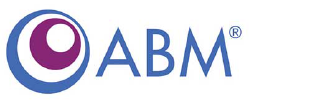
Advanced Business Match
Frequently billed as the most powerful Indigenous-driven business development platform in Canada, Advanced Business Match does exactly what its name says – bespoke business matchmaking to aid decision-makers to create opportunities for business. Their approach – which uses both online and in-person forums – combines Indigenous ways of knowing,being and relationship-building and with technology and market knowledge to build regenerative economies.
Website | @ABMConnects | LinkedIn
Headshot: Katrin Harry (Managing Partner) (16)
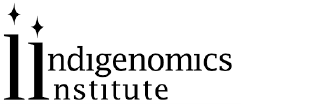
Indigenomics Institute
“Who wants to play Indigenomics?” has become a rallying cry for countless Indigenous leaders and businesses and is at once motivating, empowering and encouraging Indigenous peoples to take their place at the economic table – and to create new opportunities in trade and entrepreneurship. The Indigenomics Institute also hosted annual forums from 2019 through 2023 to unite governments, policymakers, academia and other stakeholders around the vision of an annual $100 billion Indigenous economy in Canada, and although it has been announced that the conference will wind down in 2023, the momentum and movement is still very much alive. The Institute’s founder, Carol Anne Hilton, MBA, recently released a book (link in resources section below).
Website | @Hesquiaht | LinkedIn
Headshot: Carol Anne Hilton, MBA (Founder & CEO) (17)
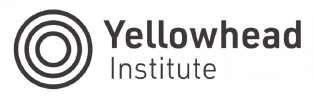
Yellowhead Institute
The Institute is a First Nations-led research centre based in Toronto, Ontario. Centring the philosophies of First Nations and rooted in community networks, Yellowhead is focused on policies related to land and governance. The Institute offers critical and accessible resources for communities in their pursuit of self-determination. It also aims to foster education and dialogue on First Nation governance across fields of study, between the University and the wider community, and among Indigenous peoples and Canadians.
Website | @Yellowhead_ | Facebook
Headshot: Dr. Hayden King (Executive Director) (18)
Resources and Further Reading
Primers on Truth and Reconciliation
- Truth and Reconciliation Commission of Canada: Calls to Action
- A Legal Analysis of Genocide: Supplementary Report of the National Inquiry into Missing and Murdered Indigenous Women and Girls
- Royal Commission on Aboriginal Peoples
- Declaration on the Rights of Indigenous Peoples Act (BCDRIP) – implementing the UN Declaration on the Rights of Indigenous Peoples (UNDRIP) in BC
Centring First Nations concepts of wellbeing
- Centering First Nations Concepts of Wellbeing: Toward a GDP-Alternative Index in British Columbia (Executive Summary also available) – Mark Podlasly, for the BC Assembly of First Nations
- Government of Canada – Indigenous Business Directory
- What is Economic Reconciliation – Simon Fraser University (Community Economic Development program)
- Indigenomics: Taking a Seat at the Economic Table – Carol Anne Hilton, MBA, Founder and CEO of the Indigenomics Institute
Other Indigenous-led organizations carrying out important work
- Friendship centres are community hubs that develop and deliver accessible programs and services for Indigenous peoples living in urban areas, and the BC Association of Aboriginal Friendship Centres is an umbrella for 25 friendship centres across BC
- Metro Vancouver Aboriginal Executive Council is a collective of urban Indigenous agencies advocating for Indigenous businesses and communities to all levels of government
- BC Treaty Commission is the body all Nations engage with for making and negotiating treaties in BC
Discover and learn more about Indigenous businesses
- Shop First Nations aims to spur consumer support for Indigenous businesses across Canada through their Indigenous business directory and similar initiatives
- Canadian Council of Aboriginal Businesses (and check out their Aboriginal Business Report)
This article was originally published in 2021 to spotlight Indigenous People’s Day. We have since revised it to include leaders and will continually update it as we discover new resources on economic reconciliation.
